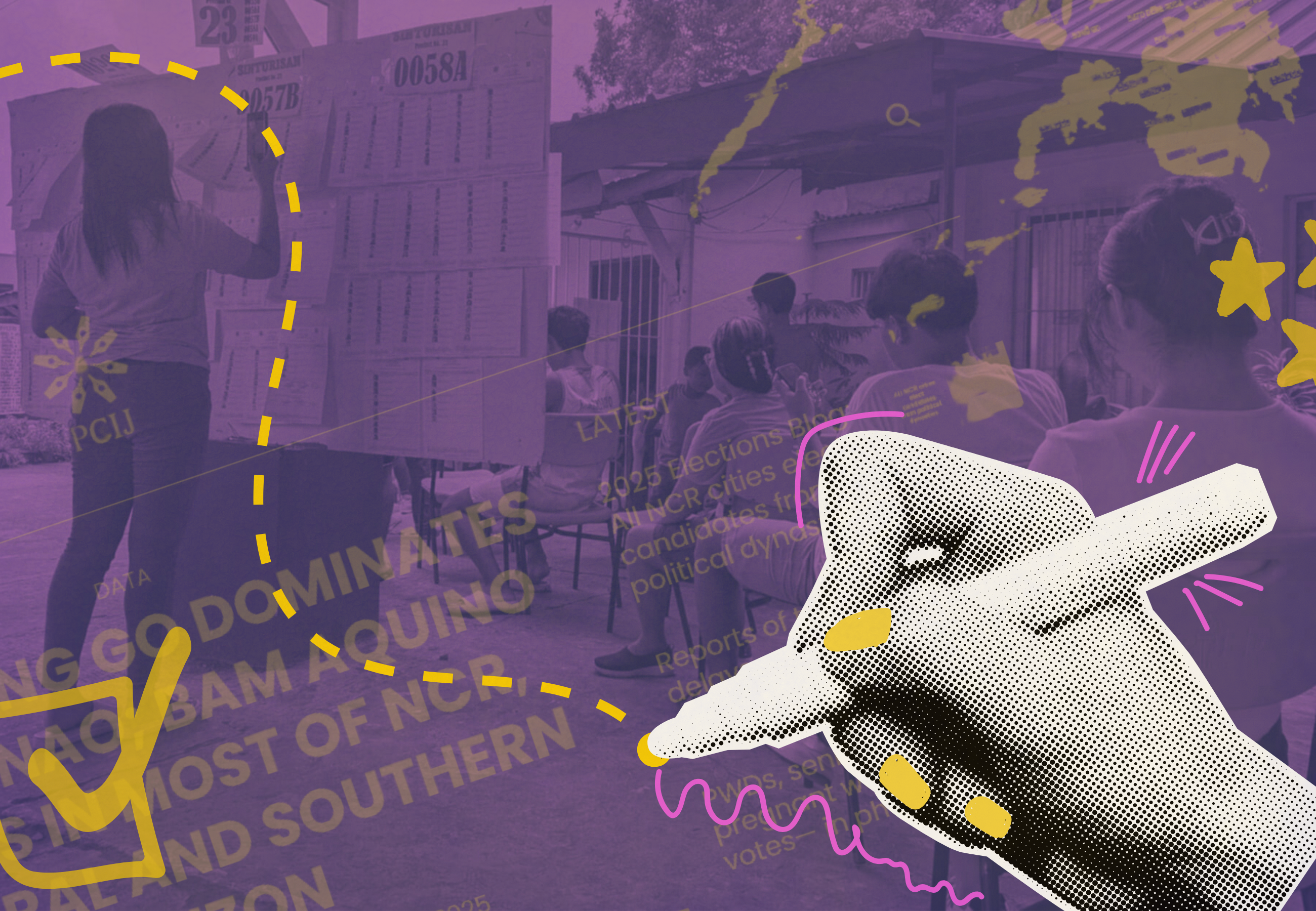From dynasties to digital ads: PCIJ sets standard for election reporting

CHEERS TO the Philippine Center for Investigative Journalism (PCIJ) for its examination of troublesome issues shaping the polls, presenting the truth with data that reveals the entrenchment of political dynasties, developments in the Bangsamoro Autonomous Region in Muslim Mindanao (BARMM), and the impact of finance on the polls.
As campaign teams managed to dominate coverage with information that played up the already prominent and aspects of personality, PCIJ kept its attention on what mattered: candidates’ spending habits, political machinery, and systemic power. This commitment to substance helped equip voters with the information they needed to choose wisely.
Illuminating Campaign Finance
Their multi-part series revealed that even before the campaign period, as much as PHP10 billion (before discounts) had already been spent by some senatorial candidates for television and radio ads. Camille Villar, Imee Marcos, and Abby Binay were among the top spenders as the three together had spent the bulk amounting to PHP8.9 billion. PCIJ also identified five other senatorial candidates whose exposure on ads had totaled at least PHP1 billion each.
But it didn’t stop at broadcast spending. PCIJ went further and exposed the use of Facebook pages to disguise the use of political advertising, blurring the line between real journalism and campaign propaganda. These may look like news articles but are political advertising designed to mislead voters, amplifying candidate visibility without transparency.
The report did not just nail down the numbers. PCIJ spotlighted current loopholes in campaign finance laws, including delayed submission of Statements of Contributions and Expenditures and vague guidelines allowing candidates to spend freely without immediate accountability.
Exposing the grip of political dynasties
PCIJ’s deep dive exposed the normalization of family rule in PH politics – the widespread practice of rotating family members in public office, even when these members have not shown experience or evidence of their capacity for public service.
PCIJ did the math, showing that dynastic capture of the electoral system with 71 out of 82 provincial governors belonging to political dynasties. It traced the same pattern in the House of Representatives, where over 80% of district representatives come from entrenched political clans.
The report also showed political families taking over the party-list. Originally intended to provide representation for marginalized groups, the system now shows the dominant presence of political families, with relatives as well as incumbent or former politicians vying for voters. PCIJ’s findings counted nominees for 36 of 54 party-list groups in the 19th Congress linked to dynasties.
For example, in the Ilocos Region, the Singsons had 23 members running in various positions. Their reporting demonstrated how these families thrive because of name recall, wealth, and tight political machinery.
But PCIJ included some bright spots in the landscape, documenting hopeful stories that show political dynasties successfully challenged and dismantled. In the Cordillera region, indigenous communities blocked dynastic encroachment by asserting traditional governance systems in support of electoral autonomy. At the same time, in Leyte, Cainta, and Pasig, citizens voters decisively voted out entrenched political families, breaking decades-long cycles of dynastic control.
Navigating the complexities of BARMM elections
PCIJ’s election series took a bold step in focusing on not just the power play in the national capital. Historic developments in BARMM have scheduled first-ever regular parliamentary elections in the autonomous region. Postponed in 2022, these are now set for October 2025. PCIJ explained how this postponement gave rise to opening the region to open contestation, evolving power struggles, court battles, and questions about legitimate representation. This included the impact of the Supreme Court’s decision to allow Sulu to remove itself from the BARMM.
Reframing Election Journalism
PCIJ has done a masterful job, referring to the basics of the electoral landscape as well as the new opportunities that could signify change in Philippine politics. The clarity and coherence of the report can re-frame the conversation about elections, which has shown the entrenchment of political power without challenge.
While much of mainstream coverage chased polling trends and personalities, PCIJ offered much food for thought that media could use to start up more in-depth discussion, not just of the problems, but of the promise of new developments that could evolve new outcomes. The story of politics should not be hemmed in only by money and the retention of its practice within families. Their stories offered facts, context, reporting not just to push for change in the coming elections, but quite possibly, suggesting that a much-needed overhaul, a re-thinking, the exploration of new ideas must begin soon enough.
Leave a Reply